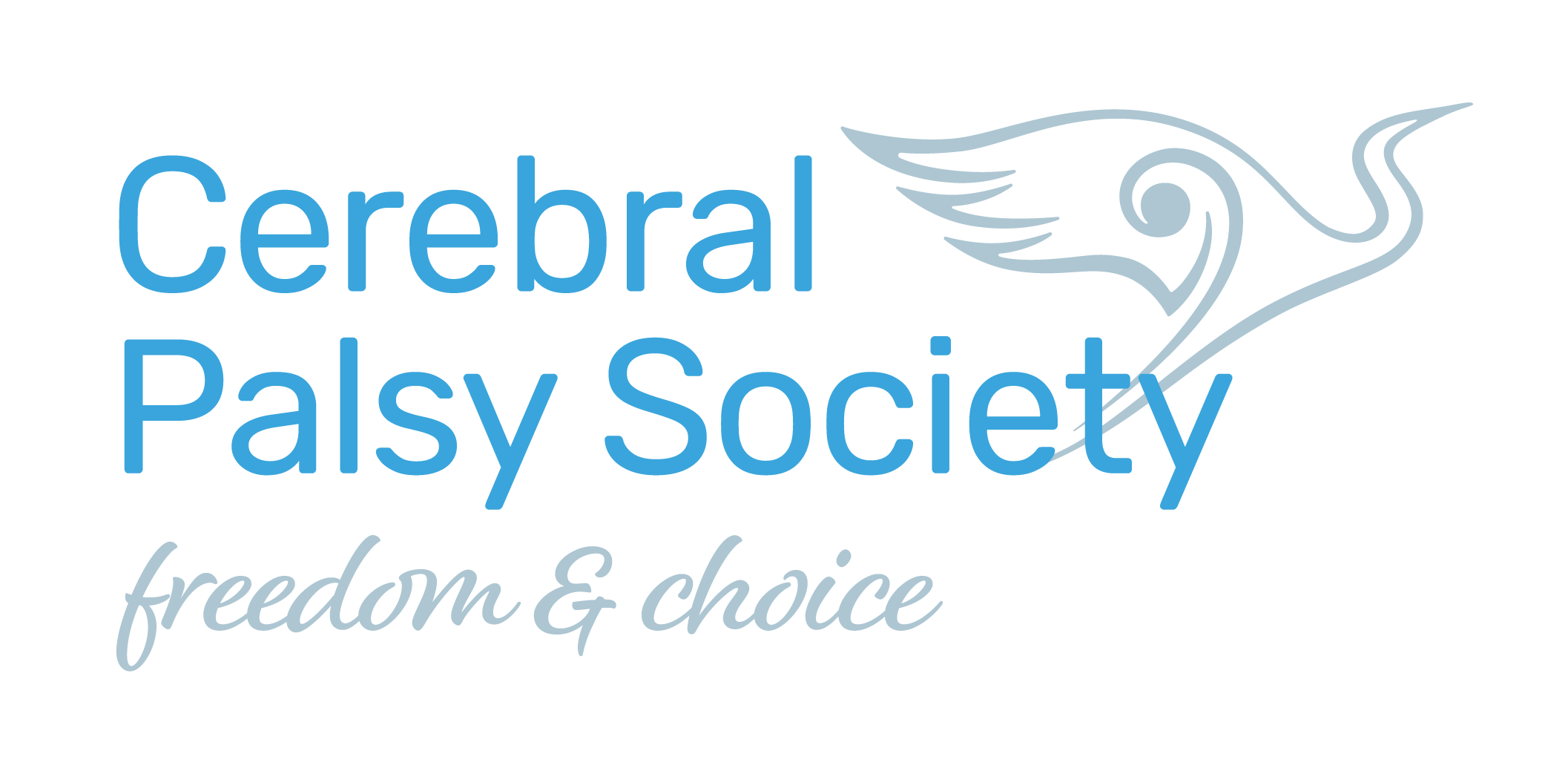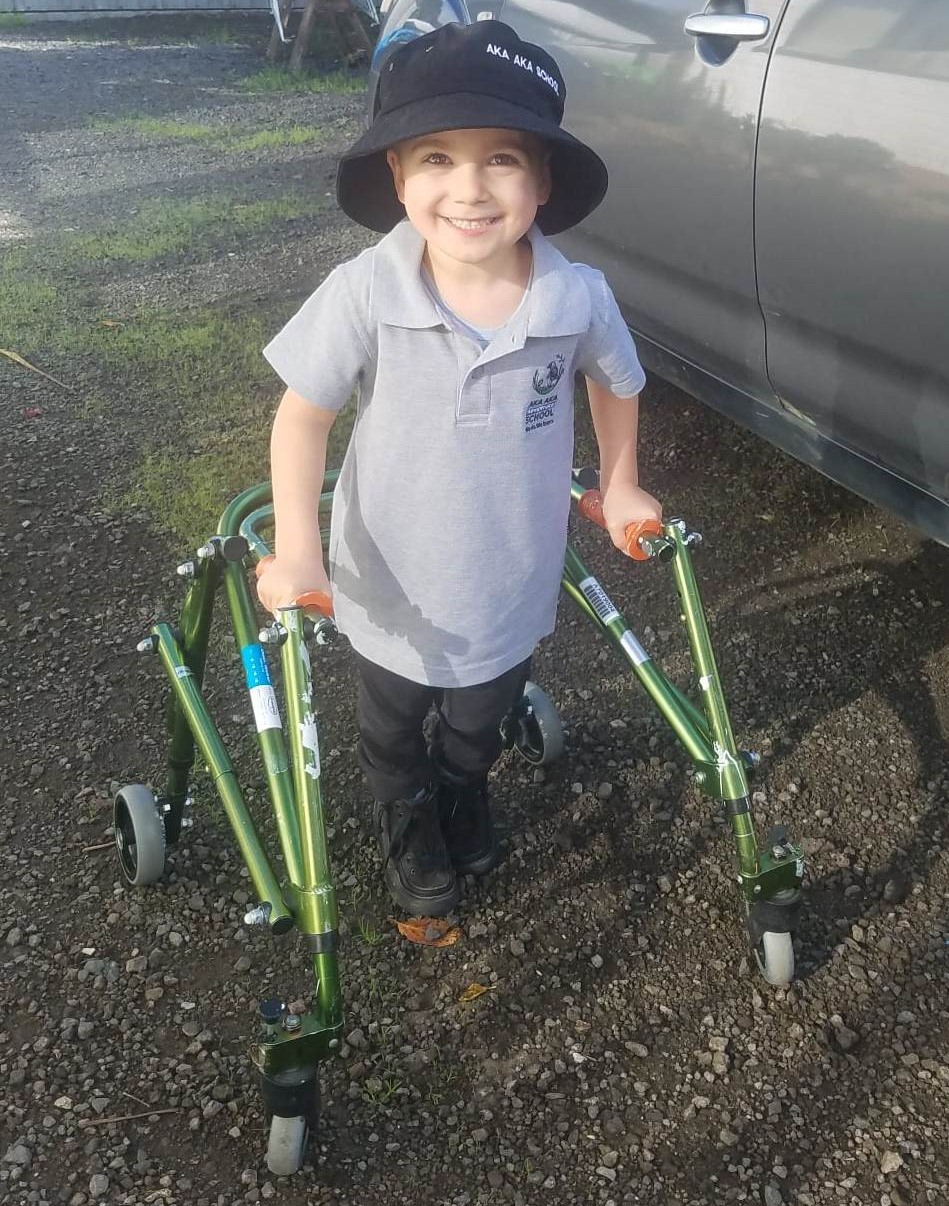Our Members - Their Stories
Services and supports for children starting school
09 Mar 2023
Adjusting to school life
Reid Lovett was all smiles when he started school.
When it comes to a child with Cerebral Palsy starting school, Emma Lovett says there’s something really important parents should remember.
That is, not to underestimate fatigue.
“Don’t feel like you have to push your kid to get through a whole school day or week,” says Emma, mum to 8-year-old Reid.
Reid started school when he was five years old – by watching the Ministry of Education programming on television during the first Covid lockdown in 2020.
Once he made it into the classroom he did not attend full time, instead going to school three shorter days per week to start with.
“Fatigue is a big factor to take into consideration.”
Reid still has Thursdays off school when Emma takes him to swimming and physio appointments.
Emma says communication with the school is key to a child with Cerebral Palsy, and their whānau, adjusting to school life.
“We were fortunate enough to have a great school, where we could be involved in the hiring of his teacher aide.”
Reid, who started 2023 in Year 3, has slotted into school life well. His favourite activities are playing, and building with Mobilo, while his favourite subjects are math worksheets and writing activities.
There’s a lot to consider when it comes to getting your child (and yourself) ready to start school.
There are plenty of extra processes, steps to navigate, and decisions to be made, when a child with Cerebral Palsy starts school.
Your child can start school, or kura, in New Zealand between the age of five and six, and all children must be enrolled at school by their sixth birthday.
Under New Zealand law, schools are required to be inclusive.
Every child’s needs are different and the school your child goes to needs to cater to his/her individual needs to help them reach their full potential. It is also worth noting that where you live will determine the supports available to you and your child.
What school will cater to my child’s needs?
In New Zealand, all children have the right of enrolment at their local mainstream school.
You may want to visit your local school to make sure every area is accessible for your child. If not, you can apply to the Ministry of Education (MOE) for funding to provide a barrier free school environment.
One of the MOE’s roles is to provide support for children with special needs.
The MOE does this by providing the following services/funding:
• Early Intervention Services (EIS)
• Ongoing Resourcing Scheme (ORS) – funding for school (read on for more information)
• Resource Teacher of Learning and Behaviour (RTLB)
• Specialised School Transport Assistance (SESTA)
• Special Education Grant (SEG)
Special Schools: If your child has very high needs, choosing a Special School may be an option for them. When considering which school your child attends, there are questions you may want to ask around class sizes, accessibility in the classroom and around the school, administering medication, teacher aides, classroom technology, curriculum modifications, involvement in school productions/outings/sport events/camp.
When it comes to preparing your child, and the school, for your child’s arrival, consider asking how you can be involved in preparing the school, how other students and staff will be prepared for your child’s arrival, can you observe the class before starting, and details around frequency and duration of school visits.
There are a number of support services available to children once they start school, including:
The Ongoing Resource Scheme (ORS): This is available if your child is considered as having high or very high needs. There is a comprehensive list of eligibility criteria for students to qualify for ORS funding and an assessment will look at the criteria level your child will need to help them throughout their schooling. Find out about ORS here.
Speech Language Therapy: A Speech Language Therapist (SLT) can help your child with speech, language and communication and liaise with the teacher.
Students who are hard of hearing: Advisors on Deaf Children (AoDC) can help with the wellbeing of students who are deaf or hard of hearing.
Specialised equipment: Assistive technology can be funded to increase or improve a child’s ability to learn and participate. Find out about assistive technology here.
TalkLink Trust offers information about assistive technologies in terms of communication.
More information:
If you’d like information about Cerebral Palsy to pass on to your child’s school or teacher, take a look at the Cerebral Palsy Society website, or email us at cpsociety@cpsociety.org.nz.
This article was originally published in the January to April 2023 edition of The Review magazine.
For more information:
Melanie Louden
Communications Manager
melanie@cpsociety.org.nz
Mobile: 022 087 8191



